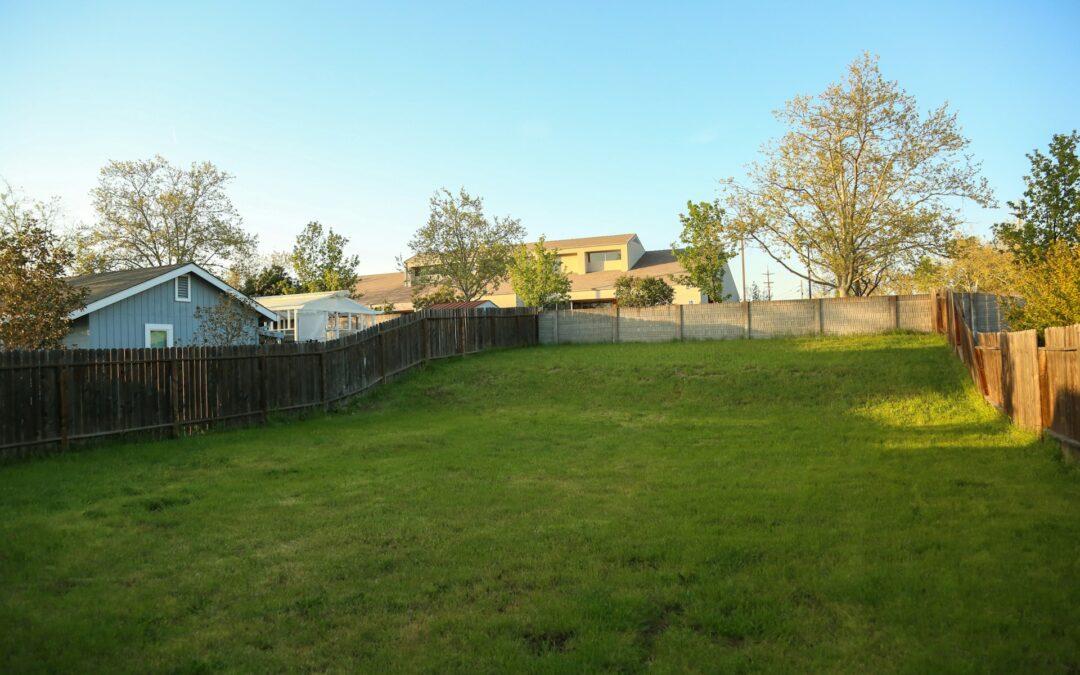Before any concrete is poured or framing begins, a build site has to prove it’s ready. That means solid ground, cleared space, and all the right checks completed—above and below the surface. It’s a stage that’s often underestimated but lays the groundwork for everything that follows.
When you’re working with a custom home builder in Texas, this step becomes even more important. Soil types change across counties, weather patterns shift quickly, and rural properties often come with unique hurdles. Making sure the lot is ready for foundation takes a mix of preparation, inspections, and planning. Here’s how we usually look at it.
Clearing and Grading the Lot
Start with the basics. The lot needs to be cleared of trees, brush, and leftover debris. That might mean pulling stumps, chipping wood, or smoothing over uneven ground where roots once ran deep. Every inch of surface material matters when you’re getting ready to pour any kind of foundation.
After the clearing comes grading. This step is not just about making things flat. In fact, being completely flat can lead to poor water drainage. What we’re looking for is controlled shaping of the land to guide water away from the home’s footprint. Slight slopes, swales, and raised grades often do a better job at keeping water from pooling near the foundation.
Grading like this takes planning. We use survey markers and grade stakes to guide machinery so we don’t end up with dips or uneven spots. Done right, it creates a base that supports the structure and helps protect it from weather damage down the line.
Shelton Custom Homes manages all clearing and grading, tailoring each lot for site conditions and proper drainage before foundation forms are set.
Soil Testing and Stability
Next up is what’s under the surface—the soil. Soil type plays a big role in how a foundation holds up over time. In many parts of Texas, you’ll find clay-heavy soil that swells and shrinks with moisture. We’ve also walked lots that had sandy or loamy soil that’s loose and dry. Each one behaves differently.
To be sure the ground is reliable, a geotechnical engineer may take several samples and study how deep the stable soil goes and how well it handles pressure. The results of this test tell us which foundation type is a good match. A slab might work fine on one site, while another may need deeper piers or a modified beam layout to stay secure.
If the soil scores poorly, we’ll look into extra prep, like replacing bad fill or reinforcing certain areas. Ignoring these findings—or guessing—can lead to cracking, settling, or big issues after the build is complete.
Shelton Custom Homes reviews every soil test before finalizing plans, ensuring that foundation design matches the property’s conditions for long-term strength.
Utility Access and Site Services
Before any digging starts, it’s smart to check on utilities. That includes confirming where power, water, and waste systems will come from. On a city lot, these might already be hooked up or easy to access. In a more rural spot, it gets tricky.
We often need to bring in power from the road, drill a private well, or create a new septic plan. These things need time and permits, sometimes even inspections before trench work can begin. If you’ve got a longer driveway or private road, there may be coordination needed with the local utility companies.
Utility lines should also be clearly marked and flagged before machines start moving dirt. It keeps crews safe and avoids damaging underground lines accidentally.
Shelton Custom Homes coordinates utility planning and pre-construction trenching for water, power, and waste, keeping projects safe and on track.
Surveying and Zoning Checks
It’s easy to stand on a piece of land and imagine a house, but it takes more than a good view to know where it can actually go. That’s where surveys and zoning checks come in.
A recent land survey helps confirm the true property lines. This matters when planning the footprint, the driveway, or even a fence-line. Without this, boundaries can get blurred—and that leads to disputes or delays.
Zoning restrictions and setbacks are another layer. Counties may have rules about how close a house can sit to a property edge or road. Easements—rights of way for utilities or passage—also affect build zones. On top of that, in places known for heavy rain or rising water, floodplain maps may control where and how you’re allowed to build.
If a site is sloped toward a creek or sees routine runoff during storms, special drainage plans may be necessary. These decisions need to happen sooner rather than later so the foundation placement can match the full plan.
Shelton Custom Homes verifies property lines, permits, setbacks, and flood status with the latest surveys and county data for every new project.
Foundation Formwork and Inspections
Once the site is clear, tested, marked, and graded, we’re ready to start framing the perimeter. That begins with setting up foundation forms. These wooden or metal shapes line the area where concrete will be poured. They create the outline, the height, and the slope that the finished floor will follow.
Before the pour, most counties in Texas will require inspections. Site inspectors may check the rebar, the depth of footings, or the forms themselves. These checks help confirm that everything meets code and that nothing critical was missed.
It’s also common for the engineer who signed the original plans to verify that the site matches the layout. Once it all gets stamped and approved, you’re finally clear to pour concrete.
Shelton Custom Homes schedules all foundation inspections and doesn’t move forward with a pour until the team and the county both sign off on the work.
Final Checks That Set the Stage
Getting a lot ready for foundation is part skill and part patience. You’re making decisions that won’t be seen in the finished house, but they shape every part that comes next. If the ground is too wet, the soil too loose, or the plans unclear, it won’t matter how good the house design is—everything starts to shift.
This is why careful prep pays off. Walking the land with a plan in mind helps everyone see what needs to happen and when. Waiting a few extra days to confirm utility runs or firm up drainage slopes saves weeks or months down the road. Foundation is more than concrete—it’s the confidence that everything underneath is ready, stable, and built to last.
At Shelton Custom Homes, we understand that a solid foundation is the cornerstone of your dream home. Our expert team ensures your lot is meticulously prepared with essential inspections and tailored plans, giving you peace of mind from the very start.
Discover how working with a custom home builder in Texas can transform your vision into reality, with every detail perfectly aligned for long-term durability and satisfaction. Let us guide you through a construction process that is as strong as the foundation itself.

